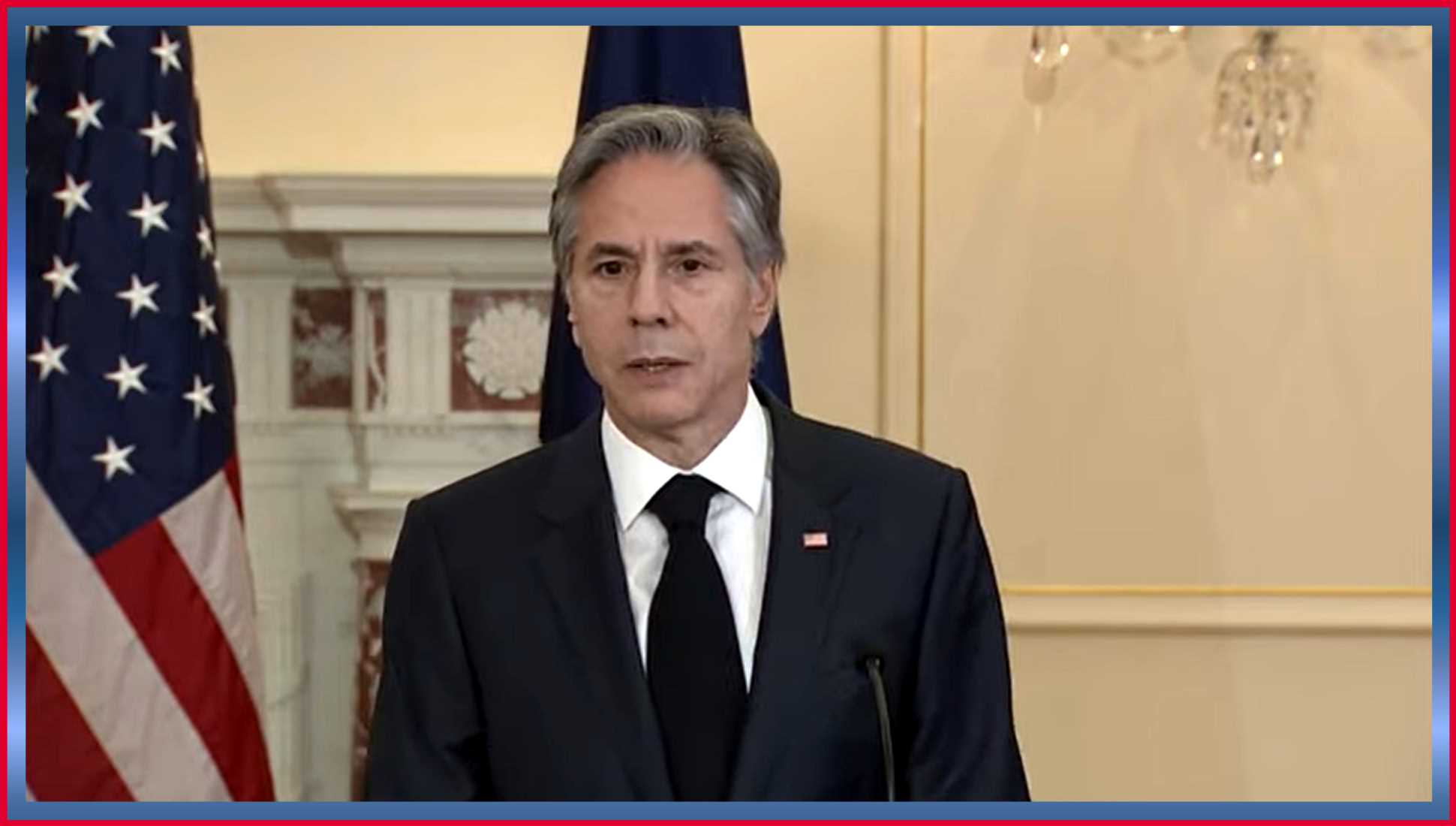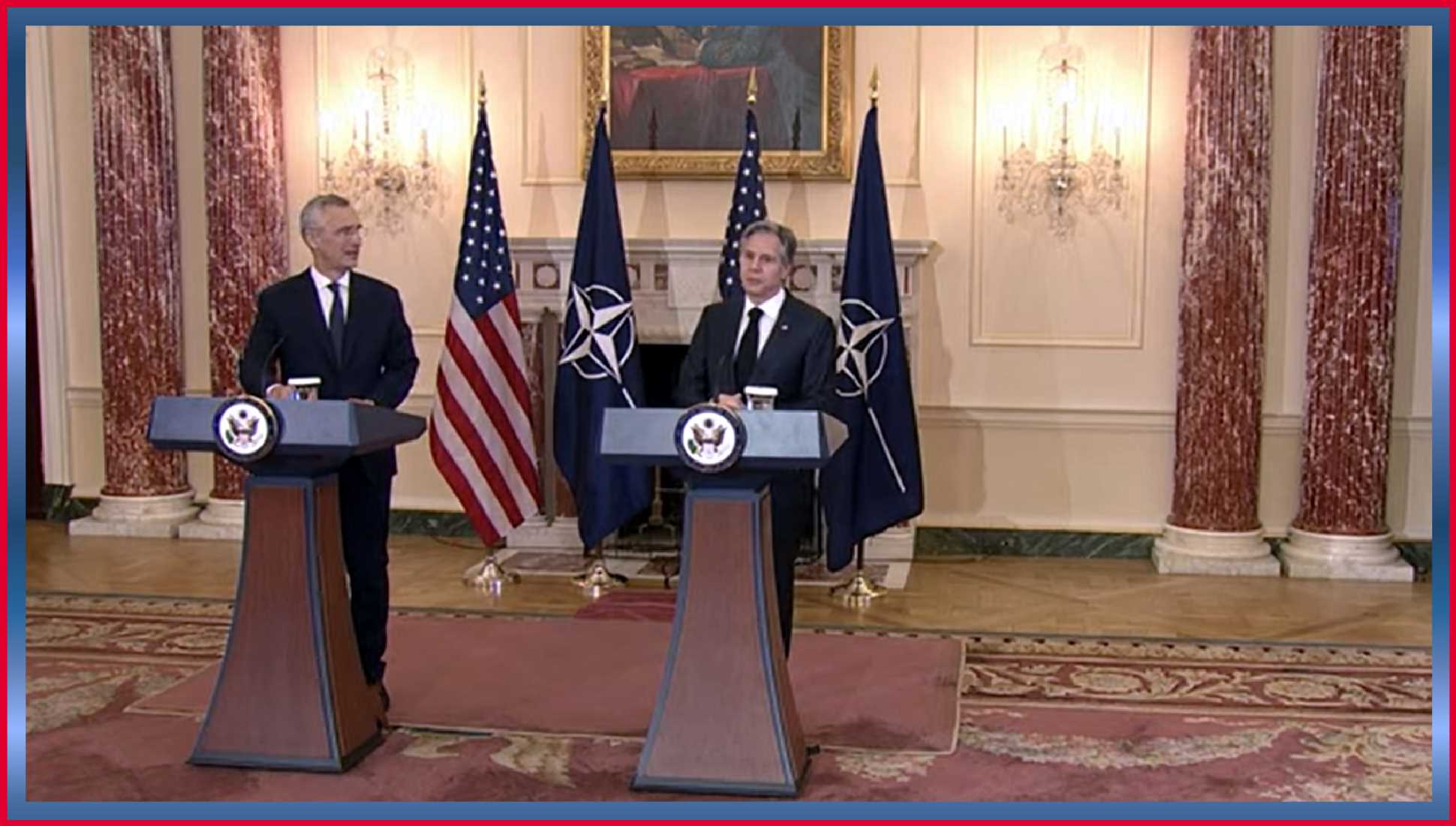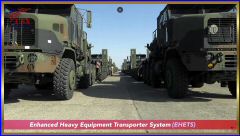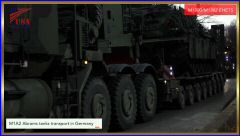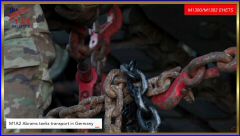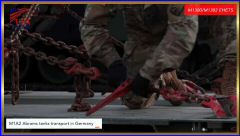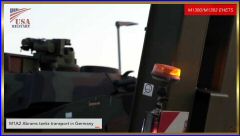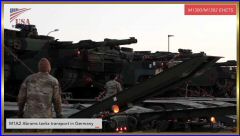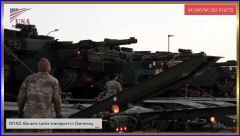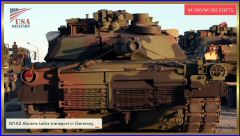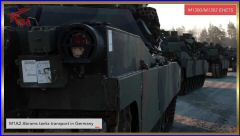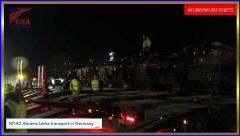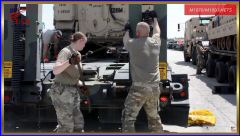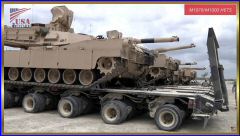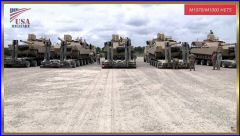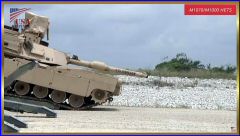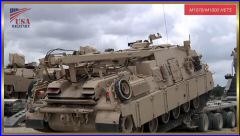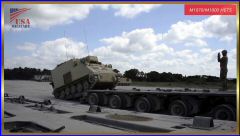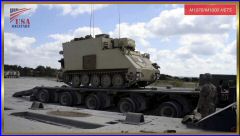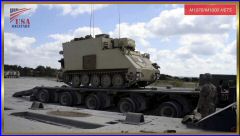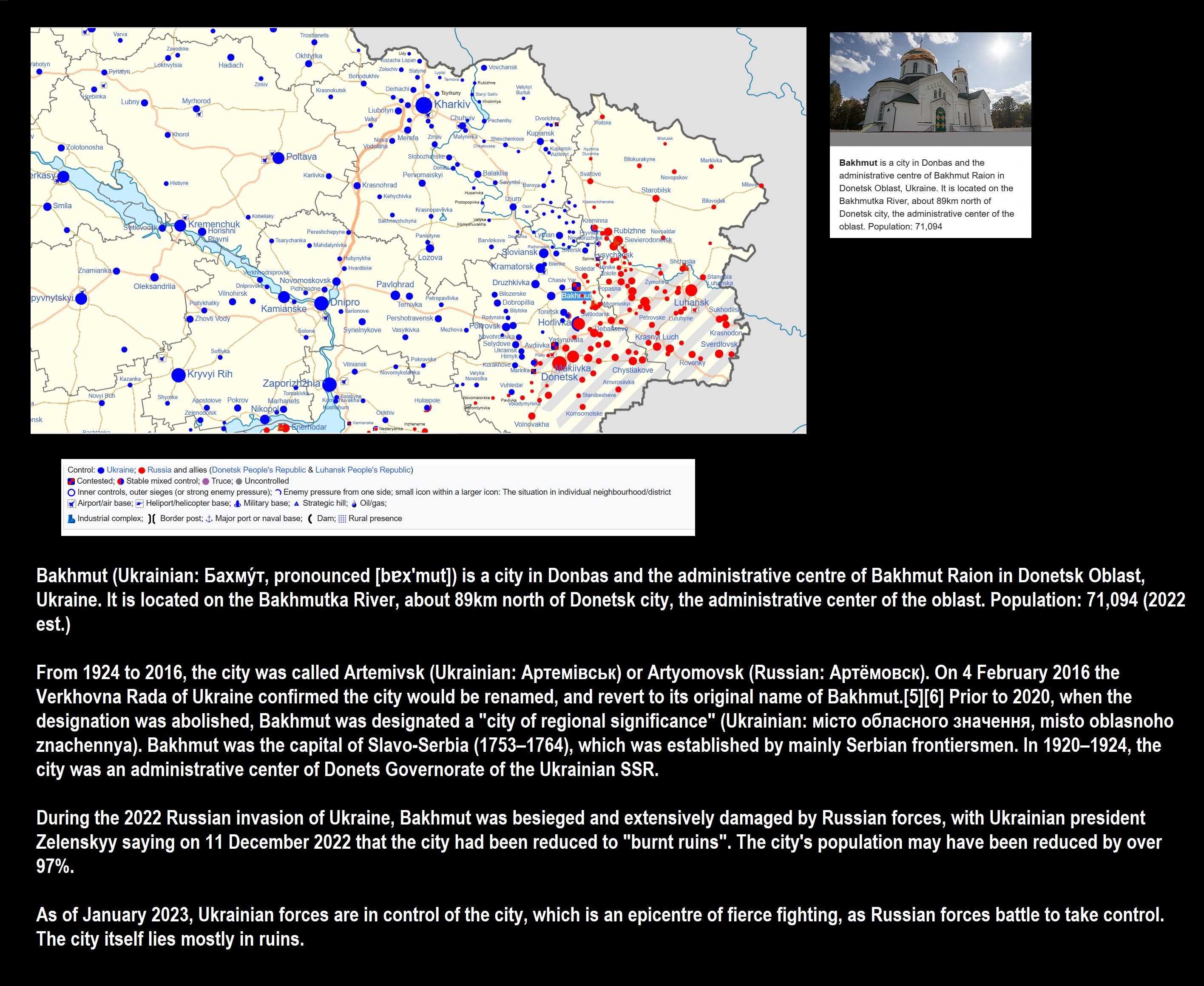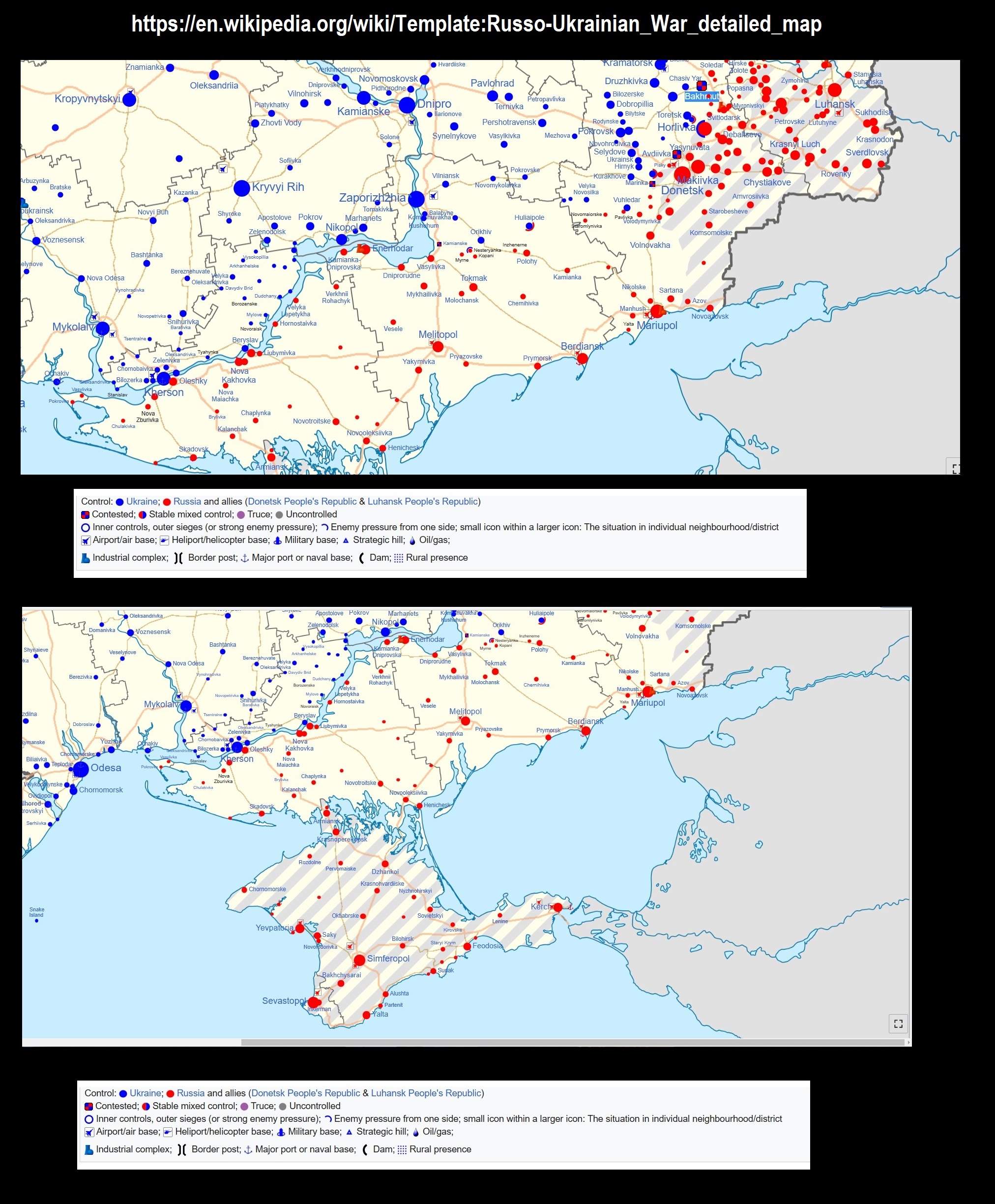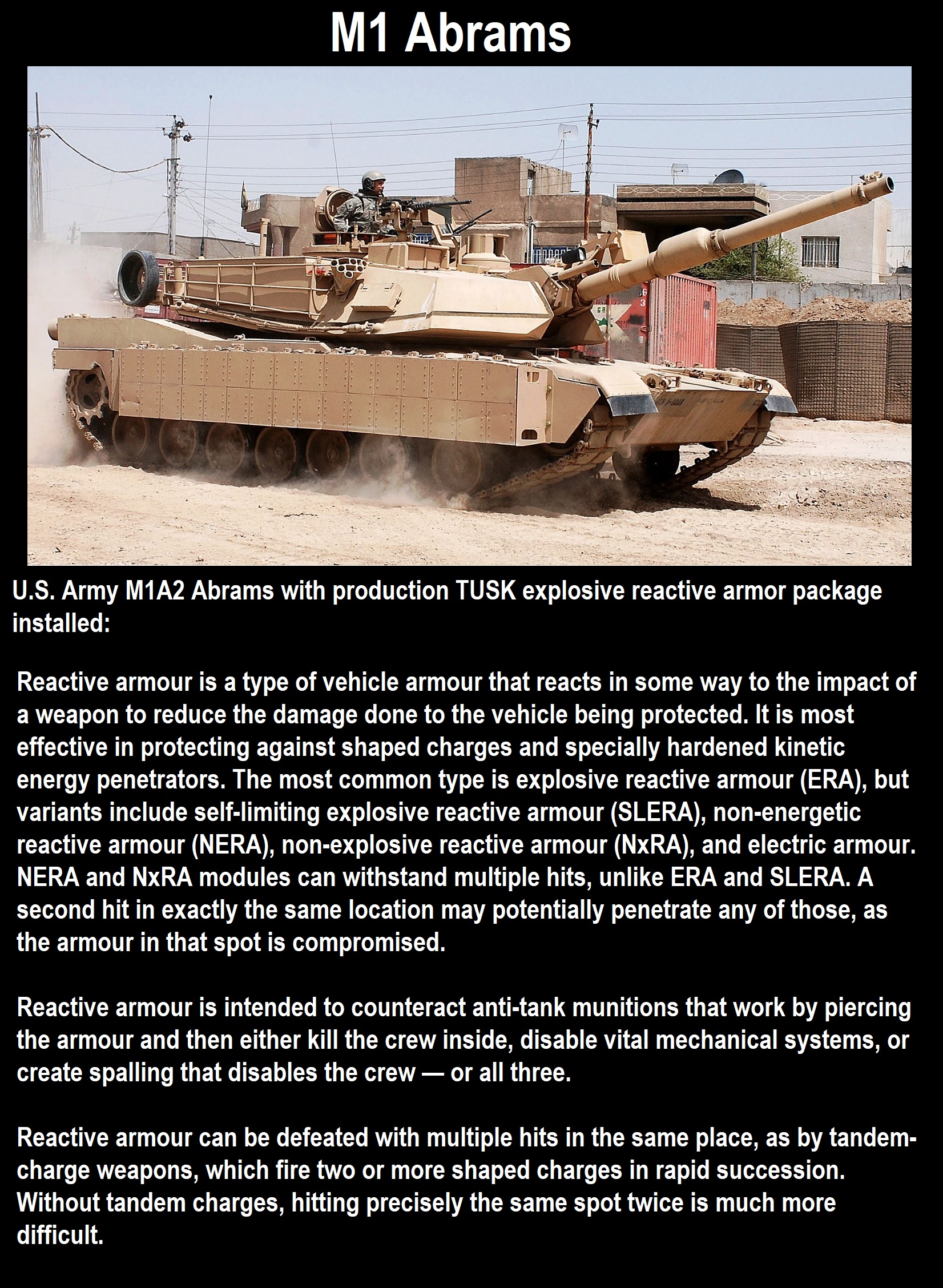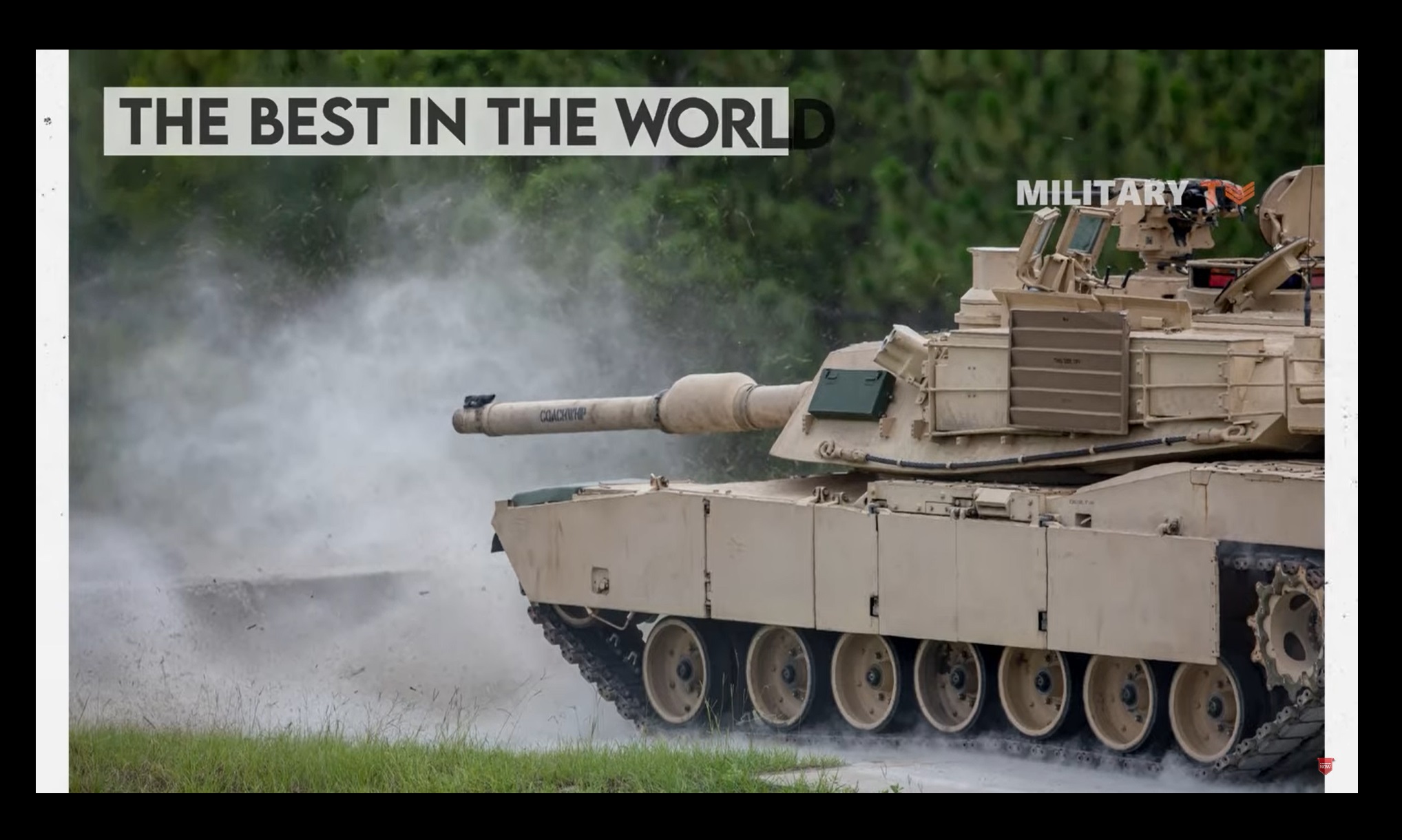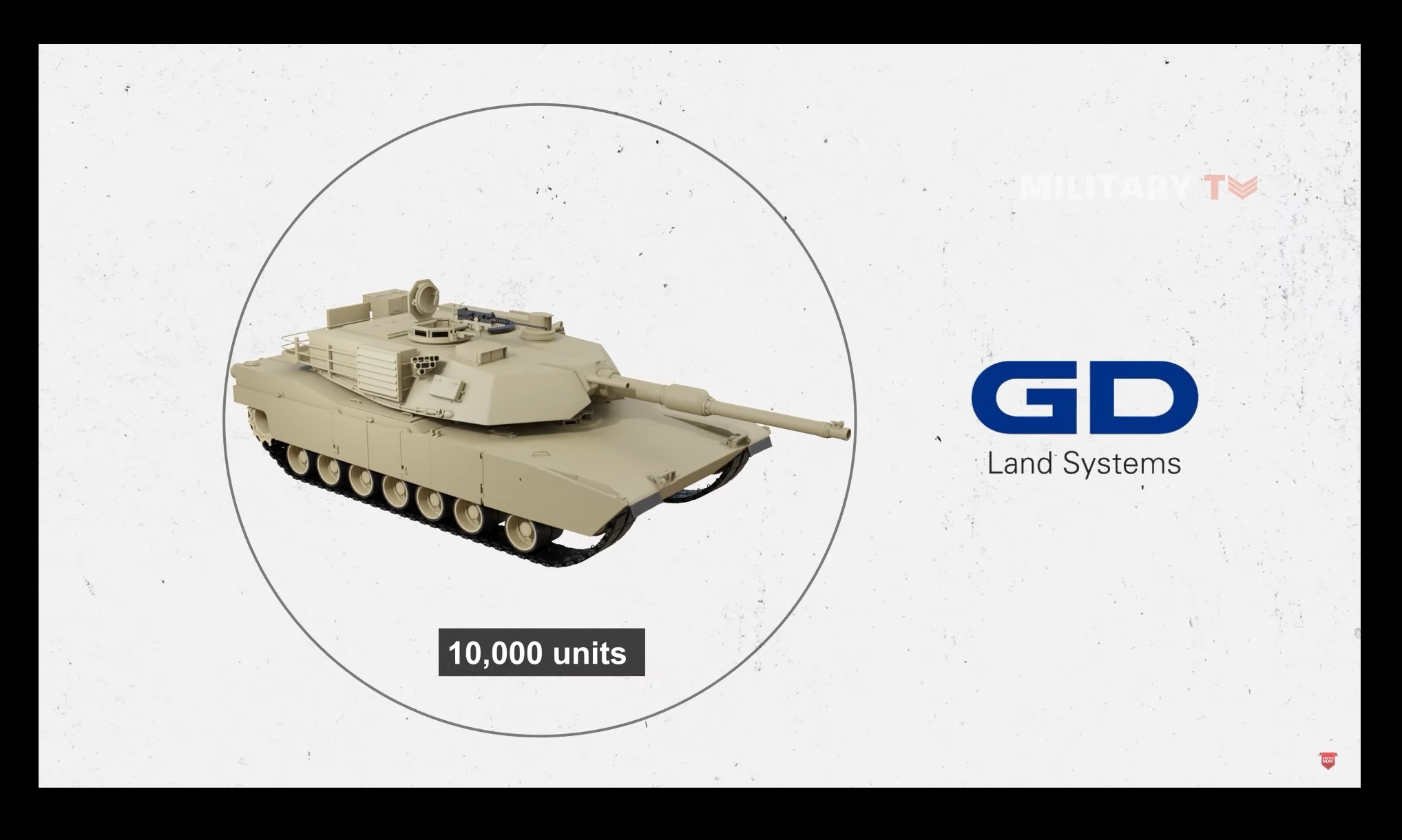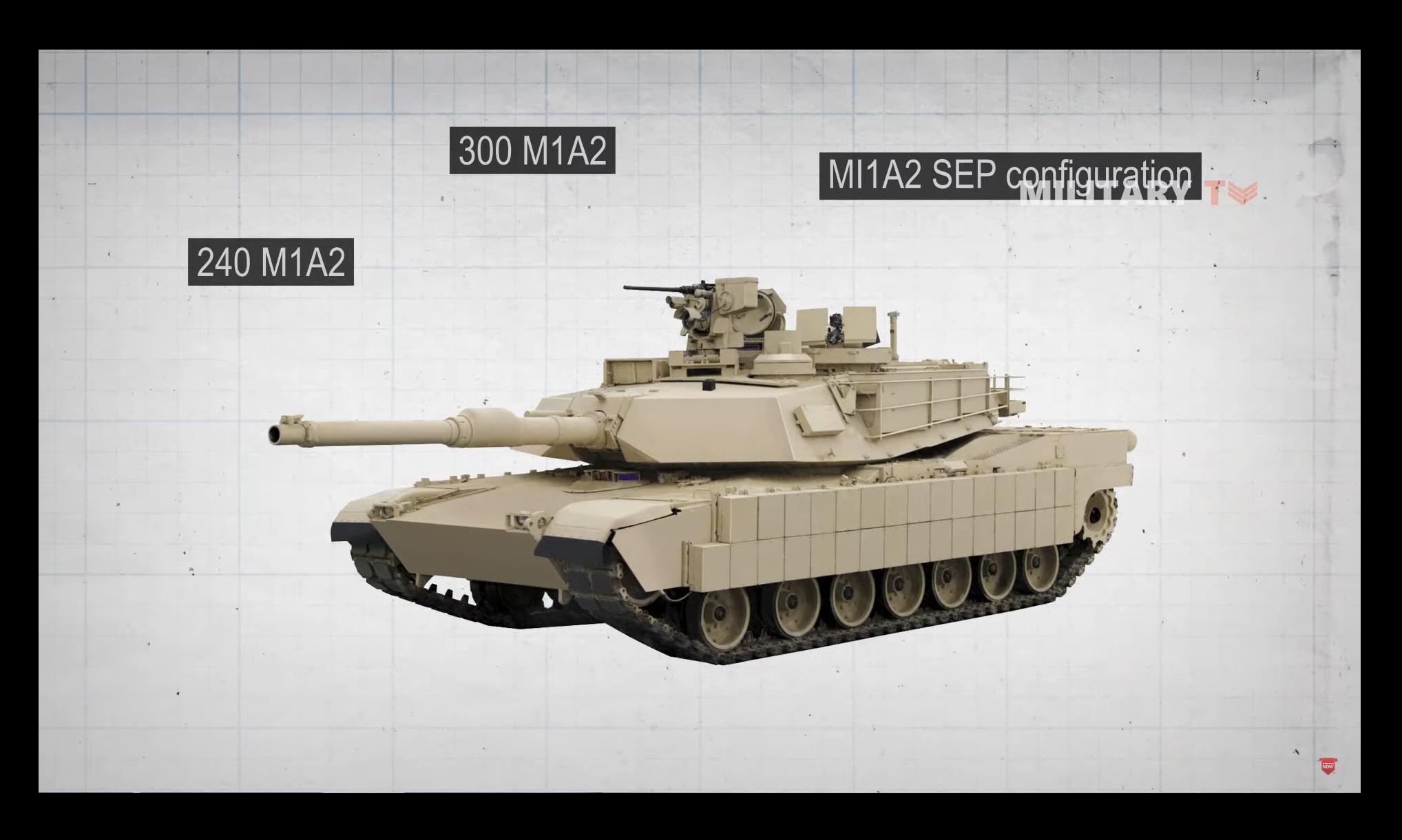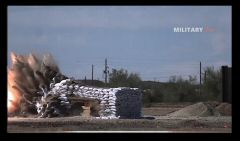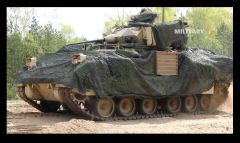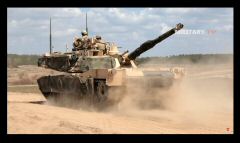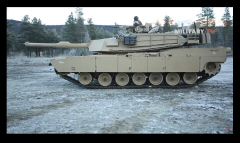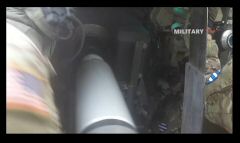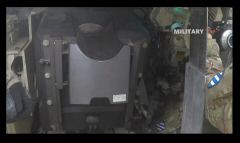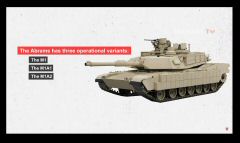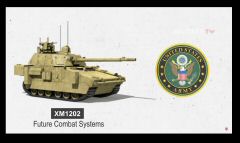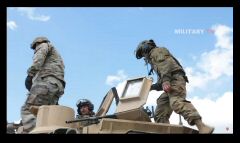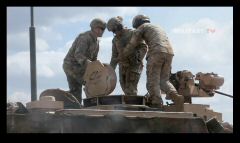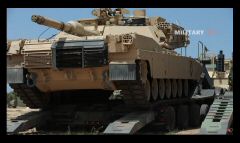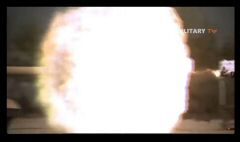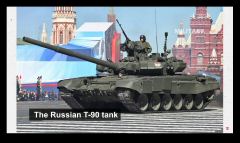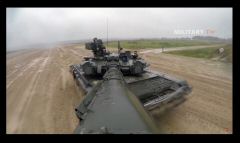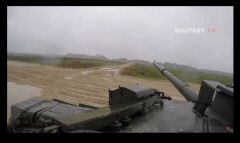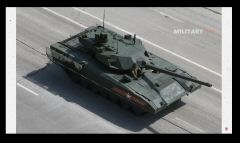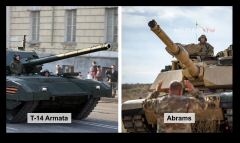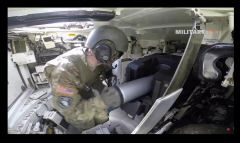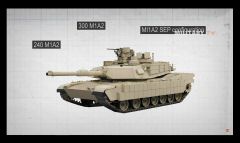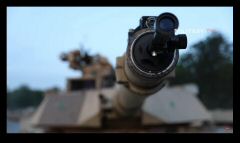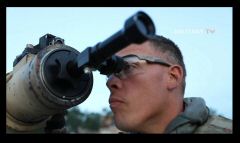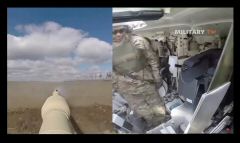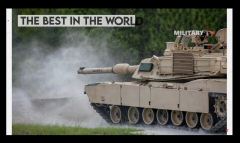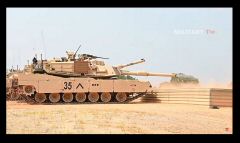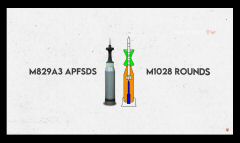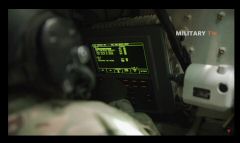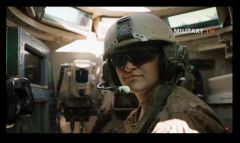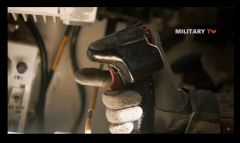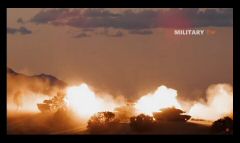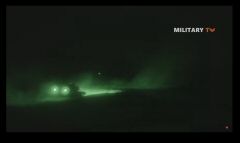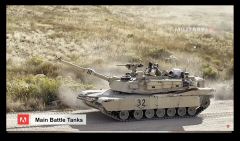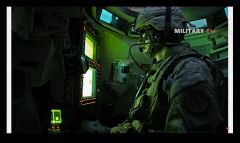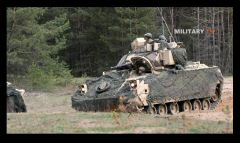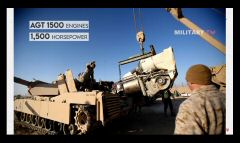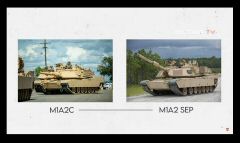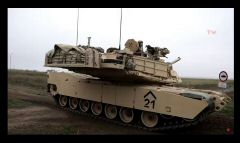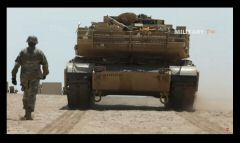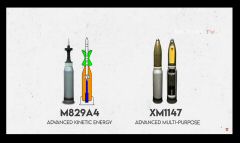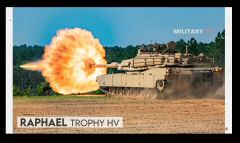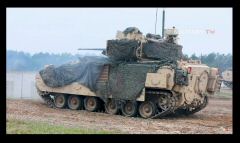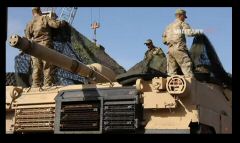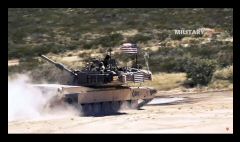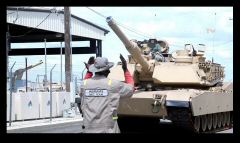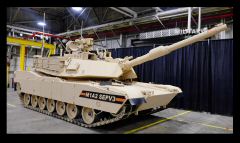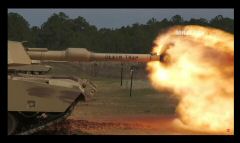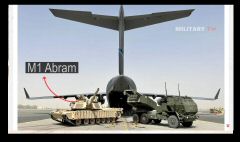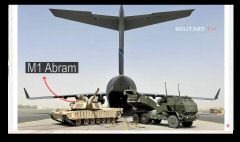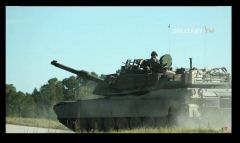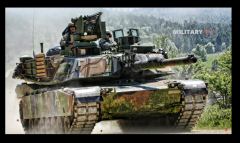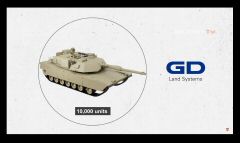|
Secretary Antony J. Blinken And NATO Secretary General Jens Stoltenberg At a Joint Press Availability REMARKS ANTONY J. BLINKEN, SECRETARY OF STATE BENJAMIN FRANKLIN ROOM WASHINGTON, D.C. FEBRUARY 8, 2023 SECRETARY BLINKEN: Good afternoon, everyone. It is as always a great pleasure to welcome the secretary general back to Washington, back to the State Department. Jens, so good to be with you.
Before I begin and with your permission, I just want to briefly update everyone on our efforts to assist Türkiye and Syria in the aftermath of Monday’s earthquakes. The loss of life has been truly staggering, shocking. We, I think along with people around the world, are mourning those who have been lost, and also our thoughts are so with those who have lost loved ones.
So far, we have deployed more than 150 search and rescue personnel to Türkiye. We have U.S. helicopters that are helping to reach areas that would otherwise be difficult to access. In Syria, we have NGO partners that we’ve funded over the years that are providing life-saving assistance to those in need. Across both countries, we’ve deployed experienced emergency managers, hazardous materials technicians, engineers, logisticians, paramedics, planners, others, along with about 170,000 pounds of specialized tools and equipment.
So, that’s been the initial response. In the days ahead, we’ll have more to say about how we’ll continue to support both the Turkish and Syrian people as they work to recover from this devastation.
Turning back to today, the secretary general and I were last together in November for the NATO foreign ministers meeting. The members of our Alliance left that meeting in Bucharest even more unified, more resolute and more committed in our support for Ukraine; which is in large part due to the remarkable leadership that Secretary General Stoltenberg has engaged in over the last year. During what has been a decisive time for NATO and for the world, his strong and steady hand has helped steer our Alliance in the right direction.
Now, as we approach the one-year mark since President Putin launched his brutal war against Ukraine, it’s critical that we maintain and increase that support. President Putin’s war continues to be a strategic failure. He’s failed to overthrow the democratically elected government of Ukraine, to subsume Ukraine into Russia, or to break the will of its people. He’s lost the battles for Kyiv, for Kharkiv, for Kherson. His military is suffering staggering losses on the battlefield, and he’s failed to weaken our Alliance and what it stands for. In fact, that alliance – NATO – is stronger and more united than it’s ever been.
Today, we focused on steps that we can take to ensure that Ukraine has the security assistance that it needs to defend its territory against Russian aggression. And we’ll continue that conversation this afternoon when we’re joined by the Secretary of Defense, Lloyd Austin, and the National Security Advisor Jake Sullivan, here at the State Department.
We’ve calibrated our assistance to meet Ukraine’s changing needs from the outset of the Russian invasion, and that’s exactly what we’ll continue to do. Two weeks ago, President Biden announced that the United States would send Abrams tanks to Ukraine. Germany committed to send its Leopard tanks and authorized other partners to do the same. This followed the earlier announcement by the United Kingdom that it would be sending Challenger 2 tanks to Ukraine’s defenders.
Last week, we also announced two new assistance packages which will provide critical air defense and counter-drone capabilities to help Ukraine defend its people, including against the threat posed by UAVs supplied by Iran, which shares Russia’s authoritarian vision and is increasingly aiding and abetting its aggression. We’re also providing armored infantry vehicles and more of the equipment that Ukraine is using so effectively, like Javelin anti-tank missiles, artillery ammunition, and rockets for U.S.-provided HIMARS.
In total, the United States has committed nearly $30 billion since the beginning of Russia’s invasion. And our allies and partners have provided more than $13 billion in military assistance over the past year and tens of billions more in humanitarian and economic support. The contributions that Europe writ large has made to this effort are very significant, and making a profound difference.
As President Zelenskyy has said, diplomacy is the only way to definitively end Russia’s war of aggression and to create a path to peace that is both just and durable. Clearly, President Putin has no genuine interest in diplomacy right now. Here’s what he said just a few weeks ago: Unless and until Ukraine accepts “the new territorial realities” – in quotation marks – there is nothing to even talk about. In other words, Ukraine and the world must somehow acquiesce to President Putin’s land grab. That should be a non-starter for every country in the world that cares about the UN charter, and preserving international peace and security.
The best way to hasten prospects for real diplomacy is to keep tilting the battlefield in Ukraine’s favor. This will help ensure that Ukraine has the strongest possible hand to play at a negotiating table when one emerges.
We also discussed the systemic and tactical challenges that China presents to the Alliance and the broader international system. Last week, Beijing violated international law and U.S. sovereignty with the presence of a Chinese surveillance balloon in U.S. airspace. This was an irresponsible act, in response to which we acted responsibly and prudently to protect our interests.
There is an ongoing operation to recover the balloon’s components. We’re analyzing them to learn more about the surveillance program. We will pair that with what we learn from the balloon – what we learn from the balloon itself with what we’ve gleaned based on our careful observation of the system when it was in our airspace, as the President directed his team to do.
We’ll also share relevant findings with Congress as well as with our allies and partners around the world. Senior administration officials are on the Hill this week, and we’ve already shared information with dozens of countries around the world both from Washington and through our embassies. We’re doing so because the United States was not the only target of this broader program which has violated the sovereignty of countries across five continents. In our engagements, we are again hearing from our partners that the world expects China and the United States to manage our relationship responsibly. That’s precisely what we’ve set out to do. We continue to urge China to do the same.
We’re also continuing to strengthen and broaden NATO’s partnerships, and weave them together in new ways. The United States welcomed the Secretary General’s visit to South Korea and Japan last week as an extension of those efforts, demonstrating the growing synergy between our Atlantic and Pacific alliances. And of course, we’re very focused on the accession of Sweden and Finland to NATO. These countries are ready to bring their strengths to bear on our Alliance. They’re capable, they’re trusted partners, they’re strong democracies that are dedicated to the values that underpin the Alliance. We’ll continue to push for the completion of this process as we head towards the Vilnius Summit in July.
And as we look to Vilnius, our Alliance is working to operationalize the strategic concept to make sure that NATO is fit for the future, including on challenges like emerging technologies, cyber defense, climate, and energy security. These were all significant achievements under the leadership of Secretary General Stoltenberg in bringing forward and having approved a new strategic concept for the Alliance to reflect the realities of the moment we’re living in and to project what we need to do into the future.
So, it’s a busy time, but we’re confident about what our Alliance could achieve – confident because of the great unity that we’ve shown again and again over the last year, and confident because of the shared purpose we bring to the year and the years ahead.
With that, Jens, over to you.
SECRETARY GENERAL STOLTENBERG: Secretary Blinken, dear Tony, it’s great to be back in Washington and to be together with you again. I would like to start by commending President Biden and the United States for providing such a strong leadership at a time when we face the most serious security crisis in a generation. And thank you, Tony, for your personal commitment and your leadership on every issue related to NATO and the vital bond between America and Europe. Unwavering American leadership and bipartisan support have ensured that NATO Allies are united like never before. And our unity makes a real difference.
President Putin launched his illegal war of aggression almost a year ago. Since then, NATO Allies have provided unprecedented support for Ukraine – around $120 billion in military, humanitarian and financial assistance. As the biggest Ally, the United States is playing an indispensable role in supporting Ukraine. European NATO Allies and Canada have stepped up as well, contributing over half of the overall assistance, including tanks, advanced air defense systems, and other military equipment. Europeans have also welcomed almost 5 million refugees from Ukraine, applied unprecedented sanctions, and decoupled from Russian gas and Russian oil. This shows how much we can do when Europe and North American stand together.
Today, we discussed the situation in Ukraine. Putin started this war of aggression, and he can end this war today by withdrawing his troops from Ukraine and coming to the negotiating table. But regrettably, we see no sign that Russia is preparing for peace. On the contrary, Moscow is preparing for new military offensives, so we must continue to provide Ukraine with the weapons it needs to retake territory and prevail as a sovereign, independent nation.
If Putin wins, it will be a tragedy for Ukraine, but it will also be dangerous for all of us. It will send a clear message not just to Putin but also to other authoritarian regimes that when they use force, they can achieve their goals. That will make the world more dangerous, and all of us more vulnerable.
Beijing is watching closely and learning lessons that may influence its future decisions. So, what happens in Europe today could happen in Asia tomorrow. China is substantially building up its military forces, including nuclear weapons without any transparency. It is attempting to assert control over the South China Sea and threatening Taiwan, trying to take control of critical infrastructure, including in NATO countries, repressing its own citizens and tramping on human rights, and deepening its strategic partnership with Moscow. So, NATO Allies had real concerns which we discussed today.
In this more dangerous and more competitive world, we must continue to strengthen our deterrence and defense, and further increase defense spending; and that is what we are doing. In 2014, under the Obama-Biden administration, all NATO Allies agreed the Defense Investment Pledge. Since then, we have seen eight consecutive years of increased defense spending across Europe and Canada – with an additional 350 million extra U.S. dollars spent. [1] More countries are now spending at least 2 percent of GDP on defense, and I expect that trend to continue.
Today, we also discussed the importance of completing Finland and Sweden’s accession to NATO. At the Madrid Summit, last July, all Allies made the historic decision to invite both countries to join NATO. All Allies have signed the accession protocols, and 28 Allies have already ratified the agreement. Finland and Sweden are now being integrated into the civilian and military structures of our Alliance. This has only strengthened their security, and it is inconceivable that Allies would not act should Finland or Sweden come under pressure. It is important that we conclude this membership process as soon as possible. This will strengthen the security of all Allies.
So Secretary Blinken, dear Tony, thank you again for your strong personal commitment and for the extraordinary leadership of the United States as we face global challenges together. Thank you.
MR PRICE: We’ll now turn to questions. We will start with Leon Bruneau of the AFP.
QUESTION: Hi there, Mr. Secretary and Secretary General. Thanks for doing this. Mr. Secretary, you started the press conference speaking about the tragic earthquake in Türkiye and Syria, and actually that’s – my question is relevant to that. Specifically, as you know, there’s – in one border crossing in the northwest of Syria, which is damaged by the earthquake and there are no other crossings, and so obviously it’s going to be difficult to get the aid there. And you also said that – you were adamant in saying that all U.S. aid would go through local NGOs, U.S.-funded local NGOs.
And so, my question is this, is I was wondering if the administration has had any contact at any level with the Syrian Government? And if there were a request through the Syrian Government, would the U.S., the administration, accede to that request to coordinate aid for the Syrian people?
And a question for the secretary general. Since Türkiye is obviously a NATO member, could you provide us some detail on what NATO is actually doing to help the recovery efforts in Türkiye? And also, tragically, would this tragedy in any way help to ease tensions with Türkiye on relevant issues that you mentioned on your agenda? Thank you very much.
SECRETARY BLINKEN: Leon, thank you very much. With regard to Syria, I’m not aware of any contacts between the United States Government and the Syrian Government in recent days since the earthquake. But here’s what we’ve been doing. If you go back to 2011, we provided more than $15 billion in assistance to the Syrian people through NGO partners – international NGO partners, partners on the ground in Syria. We’re a leading provider of humanitarian assistance to Syria, to the Syrian people, not to the government. And working through these partners, we’ve tried to make sure that the assistance gets to where it’s needed, and that’s the people who are affected by the horrific war that Assad has waged on his own people, since 2011 – and now, in the case of the earthquake, to people affected by the earthquake.
You’re exactly right that there is one crossing that allows assistance to get into Syria from the outside, and that was disrupted by the earthquake. It’s exactly why we have been fighting every single year not only to preserve that crossing at the – it’s authorized, as you know, by the United Nations – but to get additional ones so that if a crossing was taken out of action, there would be other places that people could get humanitarian assistance in. And of course, year after year, Russia has sought to block those crossings or to limit them, and that only compounds the tragedy that people in Syria are now experiencing.
SECRETARY GENERAL STOLTENBERG: Just a couple of hours after the earthquake, we sent out a call from the NATO headquarters to all NATO Allies to provide immediate support, to help Türkiye with the consequence of a devastating earthquake. And I welcome that Allies have stepped up and are now providing different types of support. Of course, the U.S., Secretary Blinken mentioned, has already provided lot of support, but also other Allies are stepping up. And that’s the continued message from NATO, is that we should support Türkiye, a valued and important NATO Ally, where we see human suffering and the devastating consequences of the earthquake.
And of course, Allies have also expressed their deepest condolences, and it is heartbreaking to see all the suffering, but also to see how people and Allies are now stepping up to provide as much help as possible.
MR PRICE: Tove Bjørgaas, NRK.
QUESTION: Question for Secretary Blinken. How important is it for the Biden administration that Sweden is also allowed to join NATO, not just Finland? And what is the U.S. doing to solve this argument with Erdogan and Türkiye? What – how can the U.S. influence that Türkiye changes its position?
SECRETARY BLINKEN: Thank you. Well, first, this is not a bilateral issue between the United States and any other country. This is an Alliance matter, and our view is very clear: Both Finland and Sweden are ready to be NATO Allies, and the Alliance should welcome them as quickly as possible. Their militaries already work seamlessly with Alliance forces. As I said earlier, they’re strong, vibrant democracies. We’re confident that NATO will formally welcome both countries, and that that will happen soon – and this will in turn enhance security across the entire Euro-Atlantic region.
As this process continues, we are fully committed to Finland and Sweden’s accession to the Alliance. And again, I think you can see the strength of that support across the Alliance. Nearly all countries took swift action. Our Senate overwhelmingly, and on a bipartisan basis, voted for their membership, and the time is right now to finalize that accession process and to welcome as full members of NATO.
We support the work that both countries have been doing with Türkiye to address legitimate concerns that Türkiye has brought to the table about its security. There’s an ongoing process there, but – as you know, both countries, Finland and Sweden, took significant steps to address concerns that Türkiye raised. They made commitments under a memorandum of agreement that was signed in Madrid, and they are making good on the commitments that they’ve made. Again, we acknowledge Türkiye’s longtime security concerns. We appreciate the tangible actions that both countries, Finland and Sweden, have taken to address them.
MR PRICE: Nick Schifrin of PBS.
QUESTION: Thank you very much. Mr. Secretary, forgive me, two questions for you, and then I’ll turn to the secretary general.
Today the British prime minister announced that the UK would provide fighter jet training, Western fighter jet training, to Ukrainian pilots and would examine the possibility of providing Western jets to Ukraine. Why does the U.S. continue to oppose a step that the British Government now believes would be helpful to Ukraine long-term?
And on the balloon, you’ve described now the network of aerial surveillance conducted by China in five continents. Do you believe that that network is run by the PLA air force, and do you believe Xi Jinping himself was aware of the balloon last week?
And Mr. Secretary General, U.S. officials have described that Chinese surveillance balloons have flown over at least one European country. Is that something that NATO is aware of and are you concerned about? Thank you.
SECRETARY BLINKEN: Thanks, Nick, very much. So first of all, with regard to the balloon, we will have more to say about that in the days ahead. We are getting more information almost by the hour as we continue to work to salvage the balloon. We’re learning from that, and, as well, we’re learning from what we saw and picked up as the balloon traversed the United States.
As to who’s responsible for that, China is, and it doesn’t matter on one level which individuals may or may not have been responsible. The fact is China engaged in this irresponsible action, a violation of our sovereignty and territorial integrity and international law. And as we’ve noted as well, we’re not alone in this. Countries across five continents have also had surveillance balloons overfly their territory, which is why we’re sharing this information with others. We continue to look to China to act responsibly; and as well to help us in managing this relationship responsibly. That’s what we continue to look for.
And I’m sorry, the first part of your question —
QUESTION: Fighter jets.
SECRETARY BLINKEN: Oh, the fighter jets. As we’ve said throughout this process, at every single turn, we will – working very closely with the Ukrainians as well as working with other partners and allies – work to make sure that Ukraine has what it needs when it needs it to effectively defend itself and to continue to take back the territory that’s been seized from it by Russian forces. As the nature of the conflict, of the aggression has evolved, so too has the support that we’ve provided.
And what we did initially – in fact, before the Russian aggression itself, as we saw it coming and wanted to make sure that Ukraine had in its hands what it would need to defend itself – we did these very significant drawdowns a year – more – well more than a year – a year and a half ago, back in September before the aggression – Christmas before the aggression. And as a result, they had things like Stingers and Javelins on hand when Russia went at Kyiv, and they were able to repel the attack and push it back. At every step along the way, as needs have evolved, so too has what we have provided Ukraine; and that most recently took place with the decision to provide the Abrams tanks and – of course, Germany providing the Leopard tanks and other Europeans doing the same.
We’ve also been very clear all along that what’s vital is not just a particular weapon system or piece of equipment. Equally important is the ability of Ukrainians to use it effectively, and that requires in some cases significant training. Equally important is the ability to maintain it. And then finally all of that has to be brought together in an actually – in a coherent strategy. All of those elements are important.
It’s a long way of saying this is an evolving process, and we will continue to make judgments about what we think Ukraine needs and what it can be most effective in using. We’ll do that in very close consultation with the Ukrainians and, of course, in consultation with our partners.
SECRETARY GENERAL STOLTENBERG: The Chinese balloon over United States confirms a pattern of Chinese behavior, where we see that China over the last years has invested heavily in new military capabilities, including different types of surveillance and intelligence platforms. And we’ve also seen increased Chinese intelligence activities in Europe – again, different platforms. They use satellites, they use cyber, and as we’ve seen over the United States, also balloons.
So, we just have to be vigilant. We need to be aware of the constant risk of Chinese intelligence, and then step up what we do to protect ourself. And we need also to react in a prudent, responsible, and vigilant way, as we have seen the United States has reacted to this specific balloon over North America and United States.
I think it also highlights that security is not regional; security is global. What happens in Asia matters for Europe, and what happens in Europe matters for Asia and also, of course, for North America. This was a message that was very much confirmed during my visit to Japan and South Korea – East Asia – last week, where those close partners of NATO very much highlighted the importance of strengthening the cooperation between NATO and our partners in the Indo-Pacific to address the challenges that China poses to our security, to our values, and to our interests. And I think that is – the balloon over North America just confirms that pattern.
MR PRICE: We’ll take a final question from Karin Eriksson of ND.[1]
QUESTION: Thank you very much. So back to Türkiye, then, because Türkiye is now sending the signal that it might accept Finland but not Sweden into NATO, separating the processes. I wanted to ask you both: To what extent do you see this as a possible or viable path forward? Thank you.
SECRETARY GENERAL STOLTENBERG: First of all, I think we have to remember that all Allies, also Türkiye, made an historic decision in July last year when all Allies at the NATO summit in Madrid invited both Finland and Sweden to become members of the Alliance. Then all Allies – all 30 Allies – signed the Accession Protocols. And so far – already, 28 out of 30 Allies have ratified the Accession Protocols.
These are historic decisions. And so far, this has been one of the quickest accessions processes in NATO’s history and the quickest in NATO’s modern history, because we have to remember that Finland and Sweden applied in May last year, and only in July they were invited, and now 28 out of 30 have ratified the protocols. They applied together, they were invited together, and 28 Allies have already signed both protocols.
I think it’s important that we recognize the importance both for Finland and Sweden, but also for the whole Alliance, that they become a member – that they will become members as quickly as possible. As part of the decision in Madrid, Finland, Sweden, and Türkiye signed a joint memorandum on how to step up cooperation – not least in the fight against terrorism. Finland and Sweden have delivered on their commitments under that memorandum. I also expressed that view in my meetings with the Turkish leadership. So, I’m confident that both will become a member, but I’m not ready to go into exactly when that will happen.
SECRETARY BLINKEN: What he said.
MR PRICE: Thank you, gentlemen.
SECRETARY BLINKEN: Thank you.
Footnote:
[1]Correction: An additional $350 billion since 2014
|
||||||||||||||||||||||||||||||||||||||||||||||||||||||||||||||||
|
January 26, 2023
Readout of Inaugural Meeting of Ukraine Donor Coordination
Briefing Room Statements and Releases | ||||||||||||||||||||||||||||||||||||||||||||||||||||||||||||||||
|
Today, Deputy National Security Advisor for International Economics Mike Pyle co-chaired the inaugural meeting of the Ukraine Multi-agency Donor Coordination Platform’s Steering Committee, delivering on G7 Leaders’ December 2022 commitment and exemplifying the Biden-Harris Administration’s unwavering support for Ukraine. Representatives from G7 countries, the Government of Ukraine, and the international financial institutions discussed how to better coordinate economic support for Ukraine’s immediate financing needs and future economic recovery and reconstruction efforts. They committed to work closely with Ukrainian authorities to define, prioritize, and sequence strategic economic needs; to further Ukraine’s reform ambitions; and to deliver economic assistance to stabilize Ukraine’s economy and underpin a sustainable and inclusive recovery. Pyle commended the Government of Ukraine’s adept management of its economy, despite incredibly difficult circumstances, and its vision for a broad-based economic reform agenda. He welcomed opening remarks from the Prime Minister of Ukraine, Denys Shmyhal, and appreciated working with his co-chairs, Finance Minister of Ukraine, Sergii Marchenko, and the European Commission Director General for Neighbourhood and Enlargement, Gert Jan Koopman, and in close consultation with Japan in its G7 Presidency role. Collaboration will continue in the coming weeks, and the Steering Committee will hold its next meeting in March. --------------------------------------------------.
Russian invasion of Ukraine Time line: From November 2022 to January 26th, 2023 14 November The United Nations General Assembly has passed a resolution that holds Russia responsible for all damage caused to Ukraine by the invasion and demands reparations.
15 November See also: October–November 2022 nationwide missile strikes on Ukraine
Fire after strike on an infrastructure facility in Kyiv Oblast Russia launched about 85 to 100 missiles at a number of Ukrainian cities. The recent strategic bombing campaign has caused severe shortages of electricity and water at multiple cities. According to the Ukrainian Air Force some 77 of 96 Russian missiles were shot down. A Pentagon official claims the Russian plan is to exhaust the Ukrainian air defences. At one stage some 50 missiles were in combat "within minutes" near the Polish border.
A missile crossed over Polish borders and struck the village of Przewodów, killing two civilians. Top leaders in Poland held an emergency meeting. Initial assessments by the United States found that the missile was likely to have been an air defence missile fired by Ukrainian forces at an incoming Russian missile.
According to Ukraine's Operational Command South, Ukrainian rocket and artillery units attacked Russian positions on the left bank of the Dnipro River and in the area of the Kinburn Spit.
17 November After the missile strikes, more than 10 million people were without power by 17 November, but a day later Ukrainian officials reported that electricity had already been restored to "nearly 100%" of Ukraine.
According to Ukrainian officials, one of the wrecks of missiles found after a missile attack earlier that day is that of an "X-55/Kh-55" cruise missile. These missiles are apparently incapable of carrying a conventional warhead, but this specific missile had an "imitation block" (model for training) of a nuclear bomb. They believe that the missile was meant to help overwhelm Ukraine's missile defenses.
20 November New Zealand Defence Minister Peeni Henare became the first NZ minister to visit Kyiv. He has indicated that New Zealand is prepared to consider more aid.[16]
23 November
Hospital in Vilniansk after missile strike on 23 November The European Parliament declared Russia a "state sponsor of terrorism" for the way Russia has systematically attacked civilians and committed war crimes. This declaration is itself symbolic, but calls for more sanctions.
The Russian military has launched 65 to 70 missiles at civilian settlements and energy infrastructure, although 51 of those were said to have been shot down. The attack caused blackouts over much of Ukraine and forced several nuclear power plants to shut down. Much of Moldova was also experiencing blackouts due to the attack-related power grid failure in Ukraine.
25 November According to U.S. and Ukrainian officials, about 1/3 of Western-supplied artillery is always out of action in Ukraine due to wear-related mechanical problems. The United States European Command is said to have a repair base in Poland, but it is problematic to transport the weapons there from the front.
28 November The Russian army was actively pushing on both sides of Bakhmut, a city in the immediate vicinity of the front on the Ukrainian side. The Russians were trying to encircle the town, but according to observers, they were making very slow progress, so there was no immediate danger to the settlement and the Russians might not be able to encircle it at the current rate.
29 November Jens Stoltenberg, the Secretary-General of NATO, made a speech at the meeting of NATO foreign ministers at Bucharest, in which he expressed alliance commitment to support Ukraine for as long as is required, because allowing Russia to win would only embolden Putin.[26] He also promised Ukraine that NATO would one day accept them as a member and that Putin cannot deny sovereign nations the right to make their own sovereign decisions that are not a threat to Russia. He also speculated that the main challenges to Putin are democracy and freedom.
30 November Ursula von der Leyen, president of the European Commission, speaking in the name of the EU, suggested the creation of a UN court to investigate war crimes committed by Russia. Russia does not recognize the International Criminal Court, so the European Commission has proposed two possible alternative ways to hold Russia accountable: either to create a court that would be set up by international treaties, or to create an international court with a number of judges from several countries. She estimated the war-damage to Ukraine is about 600 billion Euros. She proposed a financial plan to help pay for this. She pointed out that the EU has frozen 300 billion Euros worth of Russian central bank reserves and 20 billion Euros worth of money belonging to Russias oligarchs, which she suggested should be invested. The investments could be given to Ukraine when sanctions are lifted. The original statement by Ursula von der Leyen included a claim that 100,000 Ukrainian soldiers and 20,000 Ukrainian civilians have been killed so far in the war. This angered unspecified Ukrainian military officials, who are reported to have said that the death toll is classified information. In response, the European Commission edited the video of von der Leyen's speech to remove this information. Official publications of the text of the speech was also edited to omit the numbers.
December 2022 2 December Ukrainian Presidential Advisor Mykhailo Podolyak claims that 10–13,000 Ukrainian soldiers have been killed since 24 February, with a figure last given in August of 9,000.[34]
5 December Explosions were reported at two Russian airbases: the one at Engels-2 reportedly damaged two Tu-95s according to Baza; the other at the Dyagilevo military airbase near Ryazan, destroyed a fuel truck and killed three, injuring five. Russian Minisitry of Defence stated Ukraine attempted to strike Russia's long-range aviation bombers with Soviet-made jet drones, and that the drones were subsequently shot down at low altitude when approaching the air bases. The attack involved the use of Tu-141 drones that were taken out of storage. They appear to have been fitted with improvised explosives. While no significant damage or burn marks are visible on satellite images of the Engels-2 air base, at least one Tu-22M3 bomber was visually confirmed to be slightly damaged at the Dyagilevo air base.
Following the attacks, Russia launched a renewed wave of missile strikes against Ukraine, consisting of about 70 cruise misilles. Ukraine claimed 60 missiles have been shot down, Russia claimed 17 targets have been hit on the ground. As a result, a missile fell again within the borders of Moldova, near the city of Briceni. 6 December The Russian governor of Kursk, Roman Starovoyt, claimed that a Ukrainian drone attack destroyed an oil tank near an airbase. No reports of casualties and the fire was under control. No comment from Ukraine on these claims.
7 December Gathered remains of Russian Uragan, Smerch, and S-300 rockets in Kharkiv. 52,000 explosive objects were disposed as of in the Kharkiv region as of 7 December 2022. President Putin has acknowledged that the "special military operation" is taking longer than expected, however the Russian nuclear arsenal is preventing the conflict from escalating. As in June 2022, he made another reference to the expansion of the Russian Empire by Peter the Great.
9 December Putin revealed that he is considering adopting the concept of the "preemptive strike" from the U.S. According to him, the U.S. openly discussed this policy some years ago, but currently Russia is only just thinking about it. A few hours after Putin's statement, Jens Stoltenberg, general secretary of NATO, warned that there's a real possibility of a major war between Russia and NATO.
Russia re-occupied the previously liberated Dnieper river island of Ostriv Velykyi Potomkin close to Kherson. This was confirmed by presidential advisor Oleksii Arestovych and Lieutenant Colonel Konstiantyn Mashovets, as well as some unofficial Russian sources. The General Staff of the Ukrainian Armed Forces claimed on 15 December that Russia had begun the process of forcibly deporting the island's civilian residents.
10 December Russia used Iranian-made drones to hit two energy facilities in Odesa, leaving all non-critical infrastructure in the Ukrainian port without power and 1.5 million people without electricity.
Ukraine launched a missile attack on the Russian-occupied city of Melitopol including at a Russian military barracks; according to Melitopol's Russia-installed administrators, four missiles hit the city, killing two people. In addition, explosions were reported in Donetsk and Crimea.
11 December Ukraine President Zelenskyy said that Russian forces have turned the city of Bakhmut into "burned ruins".
12 December President Zelenskyy appealed to the G7 for tanks, artillery and long range weapons. In response, the G7 pledged to meet Ukraine's requirements.
Luhansk's exiled Governor Serhiy Haidai claimed that Ukraine's armed forces killed personnel from the Wagner Group, a private military company in the Luhansk Region.
The UK sanctioned Russian military commanders for missile attacks and Iranian businessmen for the production and supply of military drones. EU sanctioned 20 individuals and one entity of Iran over human rights abuse. Ministers of the European Union of Foreign Affairs have also claimed that they have proofs to support Iran supplying Shahed-136 drones to Russia despite denials from both countries.
13 December Robert Magowan, a British lieutenant general and former commander of the Royal Marines, revealed that the Royal Marines have several times been involved in "secret operations" in Ukraine, in "extremely sensitive context", involving "a high level of political and military risk".
Denis Pushilin, Acting head of Donetsk's People of Republic claimed that half of the Donetsk region is under Russian control.
14 December Three explosions were heard in the centre of Kyiv; President Zelenskyy claimed that Ukrainian air defence forces shot down 13 Iranian Shahed drones.
Reports emerged that U.S. officials were finalising and preparing to announce a plan to provide Ukraine with the sophisticated Patriot air defence system, agreeing to an urgent request from Ukrainian leaders amid increasing Russian missile attacks against Ukraine's infrastructure. Biden administration was reluctant to deploy the system for months, as a Patriot battery complex would need at least 90 trained troops to operate and maintain it, along with concerns that it would provoke Russia to escalate. Ukrainian Parliament Commissioner for Human Rights Dmytro Lubinets claimed that a children's torture chamber had been uncovered in Kherson.
Andrii Yermak, Chief of Staff of the Office of the President of Ukraine Volodymyr Zelenskyy, stated that they have released around 64 military personnel and a US Citizen during a prisoner swap deal with Russia.
15 December Zelenskyy stated that Russia should start to withdraw their troops by Christmas as a step to end the conflict. Russia responded "No Christmas Ceasefire" until Ukraine accepts loss of territory.
The Kyiv School of Economics published a report estimating that, as of November 2022, Russia's invasion had caused $136 billion in direct damage to Ukraine's infrastructure. Energy infrastructure, industry, public, and private enterprises were impacted the most.
USAID delivered four excavators and over 130 generators to Kyiv for use in "boiler houses and heat supply stations" according to mayor Vitali Klitschko.
The recently liberated city of Kherson was entirely without power following recent Russian shelling, which killed at least two people. The Kherson military administration stated that the city was hit 86 times with "artillery, MLRS, tanks, mortars and UAVs," in the past 24 hours.
In the Donbas, Ukrainian forces bombarded Donetsk city in the largest wave of shelling seen since 2014, according to mayor Alexey Kulemzin.
Volker Türk, the United Nations High Commissioner for Human Rights, published a detailed summary of 441 killings including 8 girls during the conflict.
United States had expanded its training to 500 Ukrainians each month at Germany.
16 December
Civilians shelter in the Kyiv Metro during a Russian missile attack, 16 December Russia launched around 76 missiles on Kyiv, Kharkiv, Poltava, and Kremenchuk, destroying infrastructure. Reports suggest at least four were killed in Kryvyi Rih.[78][79][80] These 76 missiles were fired at 9 power plants; Ukraine claims 60 were intercepted.
A Ukrainian strike on the village of Lantrativka, in Luhansk Oblast, officially kills 11 Russian trench diggers, but eyewitnesses claim the number is 84 killed.
17 December Missiles were launched targeting infrastructure on Kyiv, Kharkiv, Kryvyi Rih and Zaporhizhzhia. Kyiv council member Ksenia Semenova stated that approximately 60% of residents were without power and 70% were without water.[83] Ukraine restored power and water to approximately 6 million residents in 24 hours. 37 out of the 40 missiles fired at Kyiv were intercepted. Russia started a new campaign on TV to recruit more soldiers. In one advertisement, some men leave for Georgia. An old woman drops her groceries and men who have not left help her pick them up. She then says: "The boys have left, the men stayed."
18 December The Russian government recruited musicians to boost morale. The so-called "front-line creative brigade" will be made up from mobilised soldiers and musicians who have volunteered.
19 December
Building of Kherson Oblast State Administration after Russian strike on 19 December According to Ukrainian Air Force, Russia attacked Ukraine's infrastructure with 35 Iranian kamikaze drones, 30 of which are said to be shot down. 23 of the drones attacked Kyiv (according to the city officials, 18 of them were shot down). An infrastructure facility was damaged, leaving three areas in Kyiv without power supply.[88] Energy shortages caused interruptions in heat and water supply. Mykolaiv and Kherson regions were also attacked.[91] Building of Kherson Oblast State Administration was partially destroyed.
20 December President Putin stated that the situation is "extremely difficult" in the four areas of Russia-annexed Ukraine. Putin ordered the Federal Security Services to step up surveillance at the country's borders to combat "emergence of new threats" from abroad and traitors.
President Zelenskyy visited the Bakhmut region.
Russian energy exporter Gazprom said that despite a fatal explosion at the Urengoy–Pomary–Uzhhorod pipeline they were able to supply gas to their customers using parallel pipelines without any shortages.
21 December The United States is aiming to provide military aid of $1.8 billion USD including the Patriot missile system.
Ukraine President Zelenskyy met United States President Biden during his 2022 visit and addressed a joint session of the US Congress after Speaker of the house Nancy Pelosi invited President Zelenskyy.
22 December United States National Security Council spokesperson John Kirby estimated that the Wagner Group deployed 40,000 mercenaries of recruited convicts and 10,000 mercenaries of contractors. The North Korean Foreign ministry denied US claims that it was supplying "infantry rockets and missiles into Russia".
Speaking to reporters, President Putin referred to the conflict in Ukraine as a "war" and also said that the U.S. Patriot system is "old and does not work as well as the Russian S-300 missile system". Critics stated that referring to the conflict as a "war" is considered a crime under a censorship law signed in March 2022, with a penalty of up to 15 years in prison, and called for the prosecution of President Putin.
Ukrainian game developer Volodymyr Yezhov is killed defending Bakhmut
23 December The Netherlands pledged up to 2.5 billion euros to help Ukraine in 2023. This aid will pay for military equipment and rebuilding critical infrastructure. President Zelenskyy thanked them for this pledge.
24 December
Kherson after the shelling Russian forces shelled Kherson leaving 10 dead and 55 injured according to the Ukrainian President and officials. President Zelenskyy stated that the shelling first hit a department store and then a market. The Russian army has placed three battalions near the Ukraine border, inside Belarus. The Ukrainian military has made note of this and considered further securing the northern border.
Pavel Antov, a Russian billionaire and member of the United Russia party for a regional parliament, has died after a fall from a hotel in India. Describe as a "sausage magnate", Antov is about the 12th high-profile Russian businessman to have died due to suicide or an accident. Having previously made anti-war comments on WhatsApp, he claimed it was due to a "technical error". Another Russian, and friend of Antov's, Vladimir Budanov also died at the same hotel just two days before.
25 December President Putin stated that Russia is ready for negotiation, but that Kyiv and its Western backers refused to engage in talks.[113] Turkish president Recep Tayyip Erdoğan accused the West of only provoking the war in Ukraine, rather than mediating it. Erdogan cited the Black Sea Grain Initiative as an example of Turkey's role in mediating.
26 December Russia claims to have shot down a Ukrainian drone near the Engels-2 (air base). The governor of the region, Roman Busargin, reported no damage to "civilian infrastructure". Three people from the "technical staff" were killed by falling drone wreckage. According to the Russian defence ministry, "a Ukrainian unmanned aerial vehicle was shot down at low altitude while approaching the Engels military airfield in the Saratov region." Ukrainian and Russian social media accounts report a number of bombers have been destroyed; however Reuters couldn't confirm these claims. Russia's Federal Security Service (FSB) reported four Ukrainian saboteurs were killed by landmines during a failed cross-border operation into the Bryansk region. The Ukrainians were wearing winter camouflage and carrying German SIG Sauer firearms, navigation equipment, and four bombs.
Ukraine has asked the United Nations to expel Russia from the United Nations Security Council, claiming that Russia has illegally taken the seat of the USSR and is a hostile nation that wages illegal wars.
27 December Russian Foreign Minister Sergey Lavrov stated that Ukraine must accept Moscow's peace demands: "Our proposals for the demilitarisation and denazification of the territories controlled by the regime, the elimination of threats to Russia's security emanating from there, including our new lands, are well known to the enemy. The point is simple: Fulfil them for your own good. Otherwise, the issue will be decided by the Russian army."
Russia banned crude oil sales to price cap nations which includes G7, European Union, and Australia. President Putin issued a decree that ban will be effective from 1 February 2023 up to 5 months and stated that sale ban could be lifted to individuals through "specific reasons".
28 December The Department of Foreign Affairs and Trade confirmed the death of Sage O’Donnell, the fourth Australian to die fighting for Ukraine.
Russian health ministry will permit Russian soldiers who had been fighting in Ukraine to have their sperm frozen in cryobanks for free.
Chief of the Main Intelligence Directorate of Ukraine, Kyrylo Budanov said that at present, neither Ukraine nor Russian forces were able to advance.
29 December The Indian Police launched a criminal investigation into the deaths of two Russians in India, including war critic and billionaire Pavel Antov.
Ukraine Presidential advisor Mykhailo Podolyak stated that over 120 missiles were launched at infrastructure facilities in Kyiv, Kharkiv, Lviv and other cities. Ukraine claimed that 54 of 69 missiles were shot down and three people died in Kyiv; 90% of Lviv and 40% of Kyiv were without power. Belarus reported that they shot down an S-300 anti-aircraft missile that had been launched targeting rural Belarus.
The Russian regional governor, Roman Busargin, claimed that a Ukrainian drone was shot down near the Engels-2 Air Base with only slight damage to residential housing and no injuries. There were unverified reports on social media of air raid sirens and an explosion.
30 December Ukrainian army claimed to have shot down 16 drones launched by Russian forces at Kyiv and other cities. Mayor of Kyiv Vitali Klitschko, stated that two were shot down outside Kyiv while five were shot down "over" Kyiv.
President Putin and President Xi Jinping held talks via video link in which the latter reassured the former that he would maintain an "objective and fair stance" regarding the situation, according to CCTV.
31 December The head of Ukraine's armed forces, Valerii Zaluzhnyi, claimed that air defences had shot down 12 of 20 Russian cruise missiles. Vitaly Klitschko, the Mayor of Kyiv, stated that a series of explosions directed at infrastructure killed at least one person and wounded twenty, including a Japanese journalist. A drone strike on Khmelnytskyi injured two persons.
Russia announced that armed forces fighting in the regions of Donetsk, Luhansk, Kherson and Zaporizhia will have their income tax exempted.
January 2023 1 January See also: Makiivka military quarters shelling The Ukrainian military claimed to have killed 400 Russian soldiers with another 300 being wounded during a missile attack on Makiivka in occupied Donetsk. Daniil Bezsonov, a senior Russian-backed official, blamed the attack on the "American HIMARS", claiming that some 25 rockets were fired at the region. Russia's Ministry of Defence confirmed that a total of 63 Russian soldiers had died in the attack after 6 rockets had been fired. The barracks was based next to an ammunition dump, according to Russian milbloggers, which may explain the large explosion. Bezsonov has called for the military officers responsible to be "punished". The General Staff of Ukraine claimed 10 vehicles destroyed. On 3 January the Russian Ministry of Defence gave an updated figure of 89 dead.
Ukraine armed forces claimed that they had shot down 45 kamikaze drones. The Russian attack came several hours after the Ukrainian attack on Makiivka. According to the Mayor of Kyiv, one man was injured by falling debris. Russian Governor Alexander Bogomaz claimed that Ukraine launched a drone attack on an electrical facility in the Klimovsky District.
2 January According to TASS, Russian forces shot down a Ukrainian drone near the city of Voronezh.
4 January France announced that it would send AMX-10 RC and ACMAT Bastion to Ukraine.
5 January Russian Orthodox Church Primate Patriarch Kirill called for a Christmas ceasefire so that people could attend Orthodox Christmas services on 6–7 January. Turkish President Erdogan also called for a "unilateral cease-fire"; afterwards, President Putin ordered Russian armed forces to hold a 36-hour cease-fire for the Russian Orthodox Christmas. Ukraine rejected Russia's cease-fire proposal. The UK MoD said that fighting had "continued at a routine level into the Orthodox Christmas period."
The first group of 24 prisoners recruited by PMC Wagner, fighting in Ukraine, have finished their six months contracts and have been released with full amnesty for their past crimes.
In a joint statement President Biden and Chancellor Scholz announced that the German government had decided to provide Ukraine with a Patriot missile system and 40 Marder Infantry Fighting Vehicles, while the United States government would provide around 50 Bradley Fighting Vehicles.
6 January The United States Department of Defence awarded a $40 million contract to L3Harris to provide Ukraine with 4 VAMPIRE kits (vehicle-mountable light guided missile system) in mid 2023 and 10 by 2023 year-end.
8 January The Russian ministry of defence claimed that more than 600 Ukrainian soldiers were killed during the attack on barracks in Kramatorsk.[156] Kramatorsk's Mayor Oleksandr Honcharenko stated that the attack only damaged two buildings and there was no evidence of casualties. A Finnish and more than one Reuters journalist visited the site and found out that an S-300 had struck an empty school building, with no signs of casualties.
9 January Russia and Ukraine conducted their 36th prisoner swap of the conflict, with each side trading 50 POWs to the other.
Ukraine's Regional prosecutor office claimed that an S-300 fired from Belgorod Oblast hit a market in Shevchenkove, killing two women, wounding a child, and reportedly damaging a shopping centre.
A spokesperson stated that Germany has no plans to provide the Leopard 2 to Ukraine.
10 January Ukrainian steel production was reduced by about 70% in 2022 as a result of the conflict.
US and Ukrainian officials stated that Russian artillery fire had declined nearly 75% in some places.
The UK says most of Soledar is under Russian control, whereas Wagner claims all.
11 January Russian Defence Minister Sergei Shoigu appointed Valery Gerasimov in place of Sergey Surovikin as overall commander of the war against Ukraine. Surovikin will serve as Gerasimov's deputy.
Wagner Group claims around 500 Ukrainians were killed during the battle of Soledar.
12 January Governor of Donetsk Pavlo Kyrylenko stated that around 100 Russian soldiers had been killed in the Soledar area.
13 January The Russian Military stated that it captured Soledar, but Ukraine Defence minister Oleksii Reznikov denied that the city had been captured and stated the fighting was "very difficult". Governor of Donetsk Pavlo Kyrylenko stated that "559 civilians including 15 children" remained in Soledar and couldn't be evacuated. President Zelenskyy and Ukrainian Deputy Defense Minister Hanna Maliar announced that pockets of resistance in the city center continues, and that the western portion of the settlement remains in Ukrainian hands. Chief of staff to the President of Ukraine Andriy Yermak stated that "Soledar is a scene of street battles, with neither side really in control of the town." Geolocation based on photos suggested that Ukrainian troops were still defending the north western part of the city.
14 January
Destroyed apartment building in Dnipro A new wave of Russian missile strikes on several regions of Ukraine. Kyiv's Military administration reported hitting of Kyiv's critical infrastructure. Kharkiv, Odesa and other cities were also hit.
A Russian missile strike partially destroyed an apartment building in Dnipro, killing at least 46 people and injuring 80.
The United Kingdom stated that it will provide Challenger 2 tanks and artillery systems to Ukraine.
15 January Armin Papperger, the CEO of German arms manufacturer Rheinmetall, stated that the company would not be able to deliver battle-ready Leopard 2 tanks to Ukraine until 2024.
16 January Ukraine admitted that they had lost Soledar.
German Defence Minister Christine Lambrecht resigned in part due to blunders over German support for Ukraine.
A grenade exploded in Tonenkoye village's community center, which was used to store ammunition and house Russian soldiers. TASS reported that the RGD-5 grenade explosion in Belgorod Oblast killed 3 soldiers and wounded 16. Eight soldiers are missing.
Russia had secured control of Soledar after capturing the last industrial zone near mine number 7 which was previously held by Ukrainian troops.
17 January
IAEA team visiting the Rivne Nuclear Power Plant, 17 January 2023 The US Military stated that Ukrainian soldiers are being trained in the United States on the Patriot Missile system.
Serbian President Aleksandar Vucic condemned PMC Wagner for running a social media campaign calling for Serbian recruits to fight in Ukraine.
18 January Australian Defence minister Richard Marles stated that Australian Army soldiers will be deployed in the UK to train Ukrainian soldiers in "infantry tactics in an urban, wooded and basic infantry tactics".[193]
20 January Ukraine Defence Minister Oleksii Reznikov stated that, despite the lack of agreement to export the tanks, Ukrainian soldiers would be trained on Leopard 2 tanks in Poland.
21 January Russia claimed to conduct a new offensive in Zaporizhzhia Oblast.
22 January German Foreign Minister Annalena Baerbock stated that Germany would not stand in the way if Poland or other countries provide Leopard 2 tanks.
Russian state media reported that Russia advanced into Orikhiv and Hulyaipol towns in Zaporizhia region. 23 January Polish Prime Minister Mateusz Morawiecki stated that Poland will provide 14 Leopard tanks to Ukraine regardless of Germany's approval;[198] the next day, Poland officially requested permission to export them. German Defence Minister Boris Pistorius encouraged other countries to provide training on the tanks for Ukrainian soldiers.
French President Emmanuel Macron stated that France would send Leclerc tanks to Ukraine.
Norwegian defence chief General Eirik Kristoffersen stated that around 180,000 Russian soldiers were dead or wounded and there were around 100,000 military casualties and 30,000 civilian dead from Ukraine. 24 January Several senior and junior ministers resigned from positions in the Ukrainian government, including the deputy head of the President's Office, a deputy Defence Minister, the Deputy Prosecutor-General and the deputy infrastructure minister.
German Chancellor Olaf Scholz agreed to provide Leopard 2 tanks and allowed other countries to do the same. Ukraine senior officials stated that around 100 Leopard 2 tanks from twelve countries are ready to be transferred to Ukraine.
A missile hit a Turkish-owned cargo ship Tuzla and started a fire while at the Port of Kherson. There were no reported casualties.[a]
image icon Turkish-owned cargo ship targeted by missiles 25 January The United States is expected to send 31 M1 Abrams tanks to Ukraine and German Chancellor Olaf Scholz agreed to provide 14 Leopard 2A6 tanks to Ukraine. Those tanks, along with the contributions of other nations, will total around 88 Leopard tanks.
26 January According to Ukraine, 55 missiles were fired at targets in Ukraine, along with another 24 Shahed-136 drones. The Ukrainian Air Force claims to have shot down all of the drones and 47 of the missiles. Including in the attack was a Kh-47 Kinzhal hypersonic missile. Kyiv’s Mayor said one person had died and two were wounded when an apartment block was hit in the Holosiiv district. This is the 13th mass attack since the invasion began.
|
||||||||||||||||||||||||||||||||||||||||||||||||||||||||||||||||
|
January 25, 2023 Remarks by President Biden on Continued Support for Ukraine
|
||||||||||||||||||||||||||||||||||||||||||||||||||||||||||||||||
